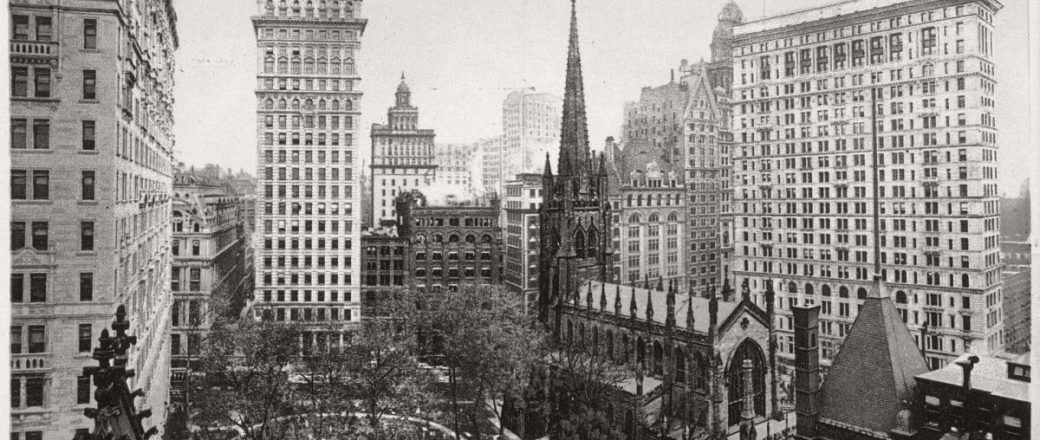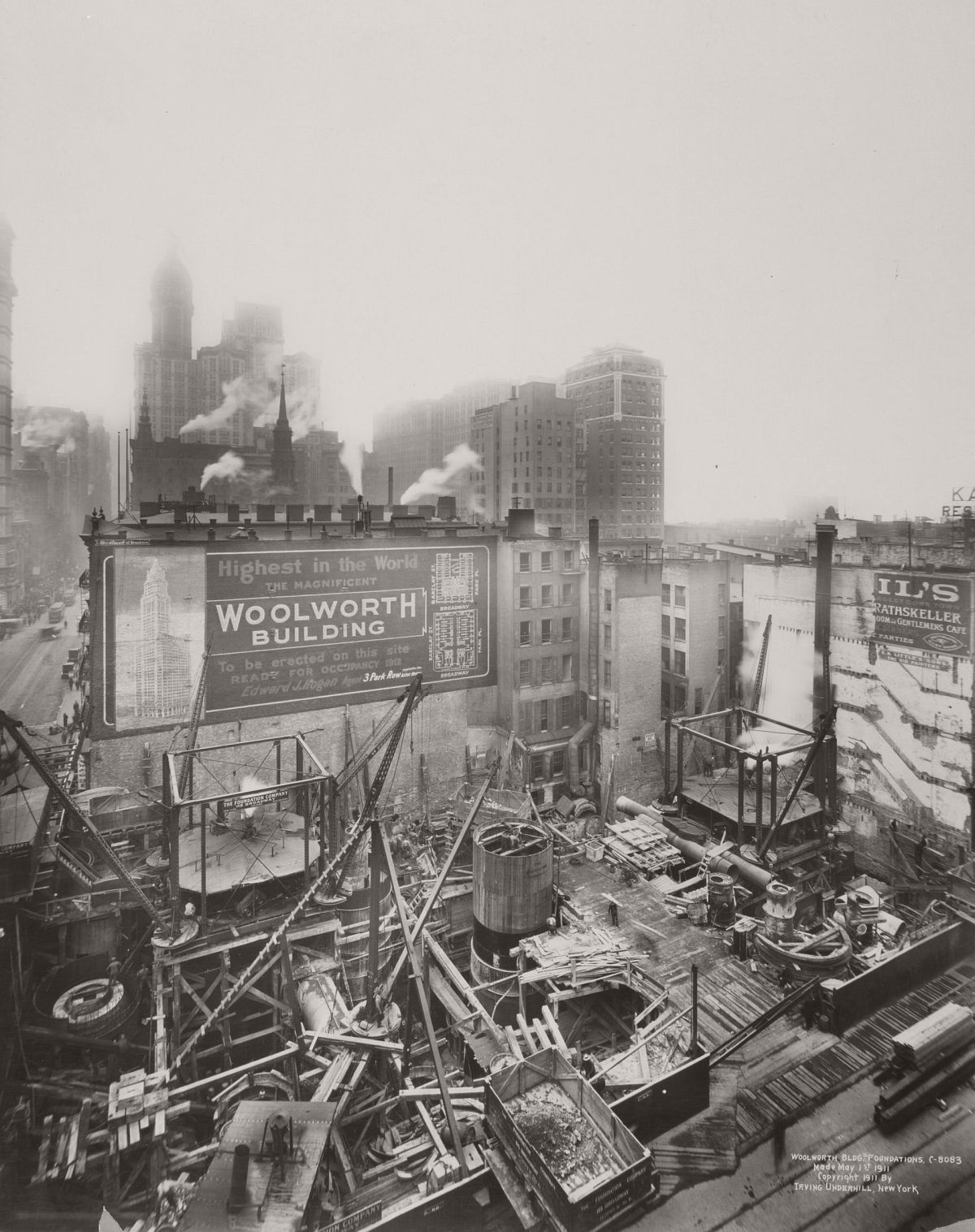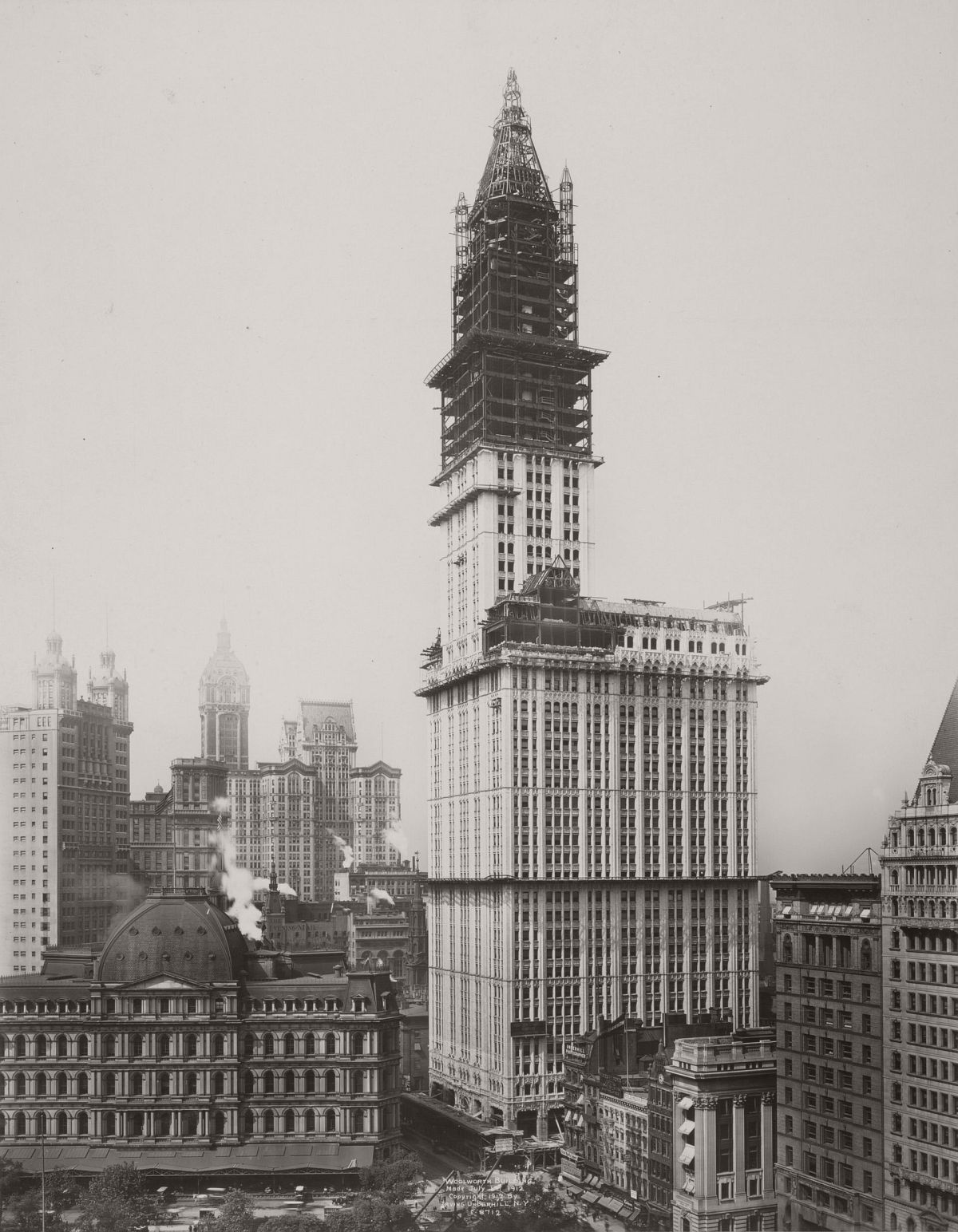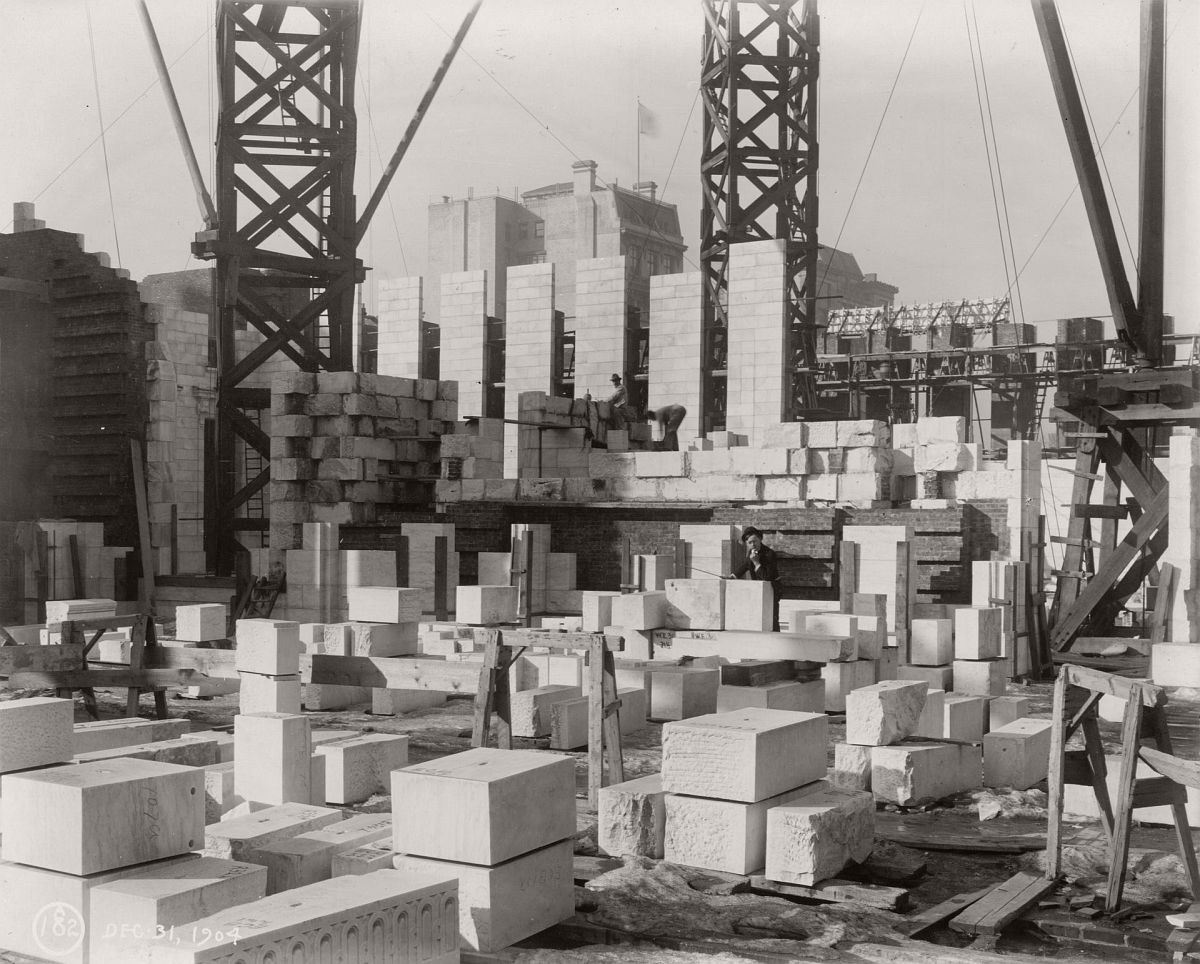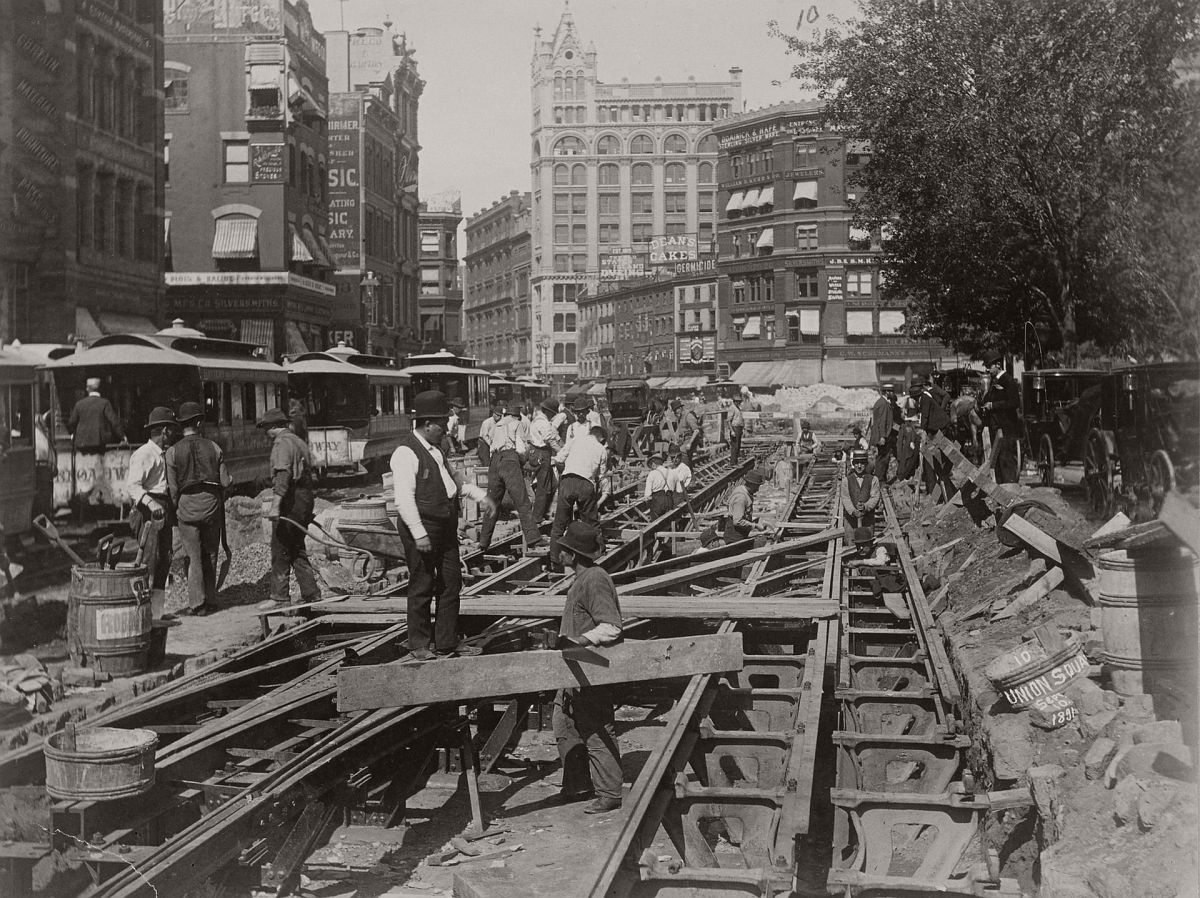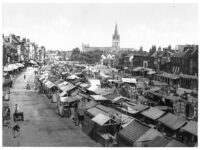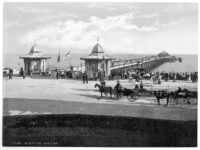New York has architecturally significant buildings in a wide range of styles spanning distinct historical and cultural periods. These include the Woolworth Building (1913), an early Gothic revival skyscraper with large-scale gothic architectural detail. The 1916 Zoning Resolution required setback in new buildings, and restricted towers to a percentage of the lot size, to allow sunlight to reach the streets below. The Art Deco design of the Chrysler Building (1930) and Empire State Building (1931), with their tapered tops and steel spires, reflected the zoning requirements. The Chrysler building is considered by many historians and architects to be one of New York’s finest, with its distinctive ornamentation such as V-shaped lighting inserts capped by a steel spire at the tower’s crown.
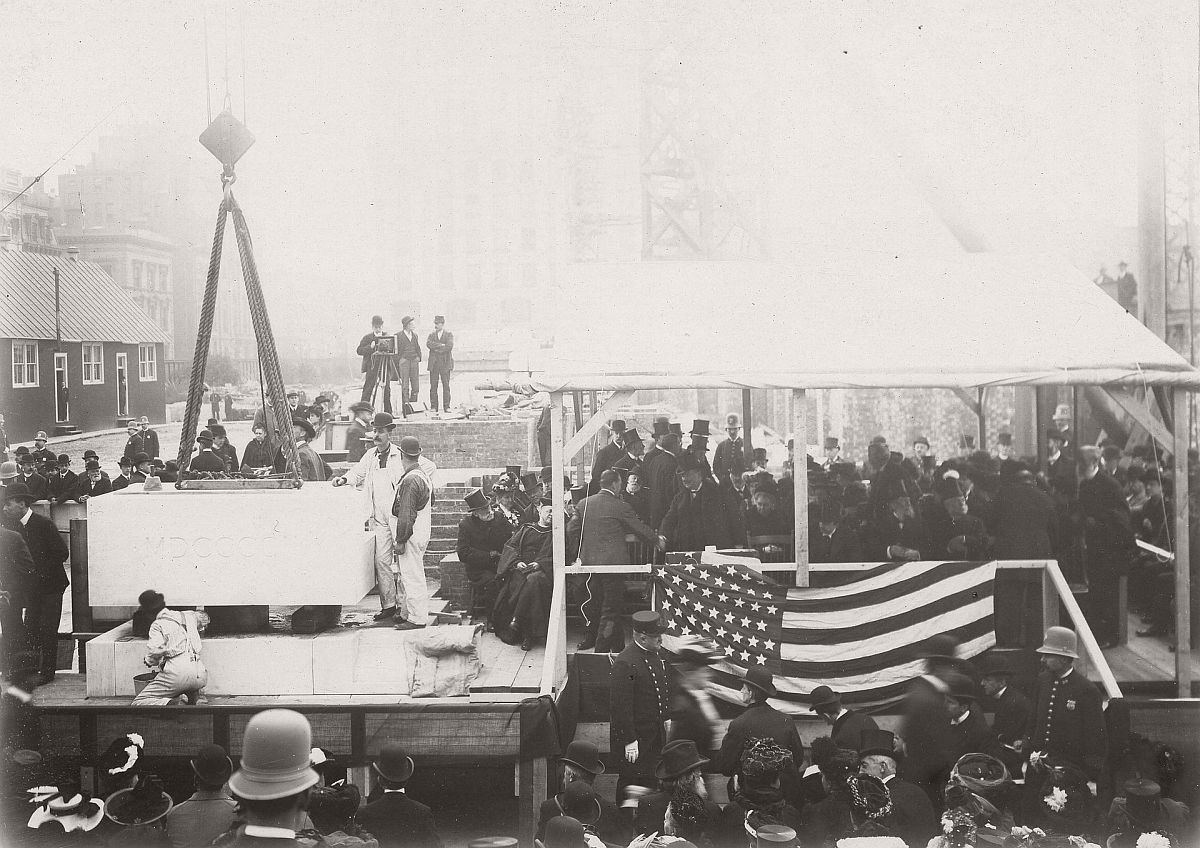
The cornerstone ceremony for the central building of the New York Public Library, 1902. Photograph: New York Public Library
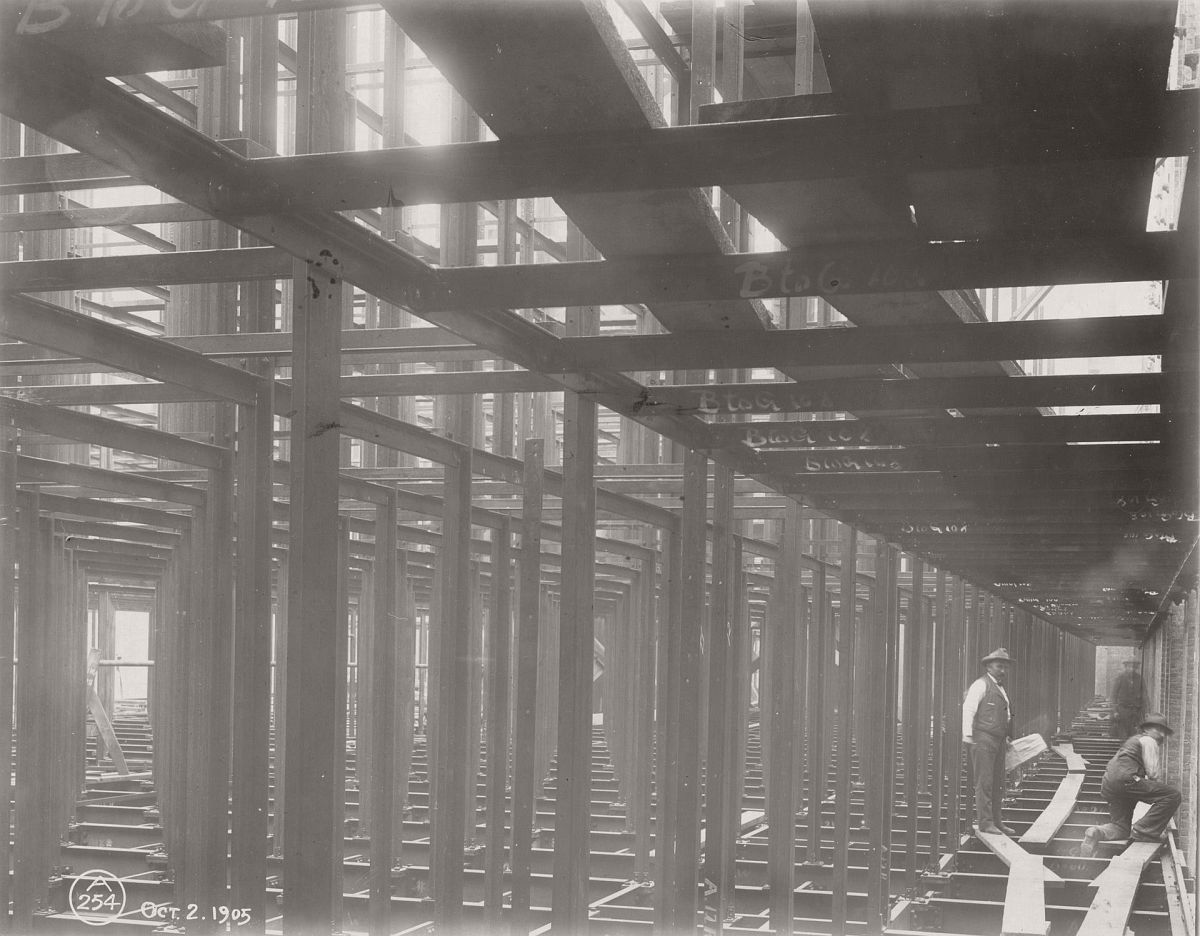
The structural framework of the central building of the New York Public Library, 1905. Photograph: New York Public Library
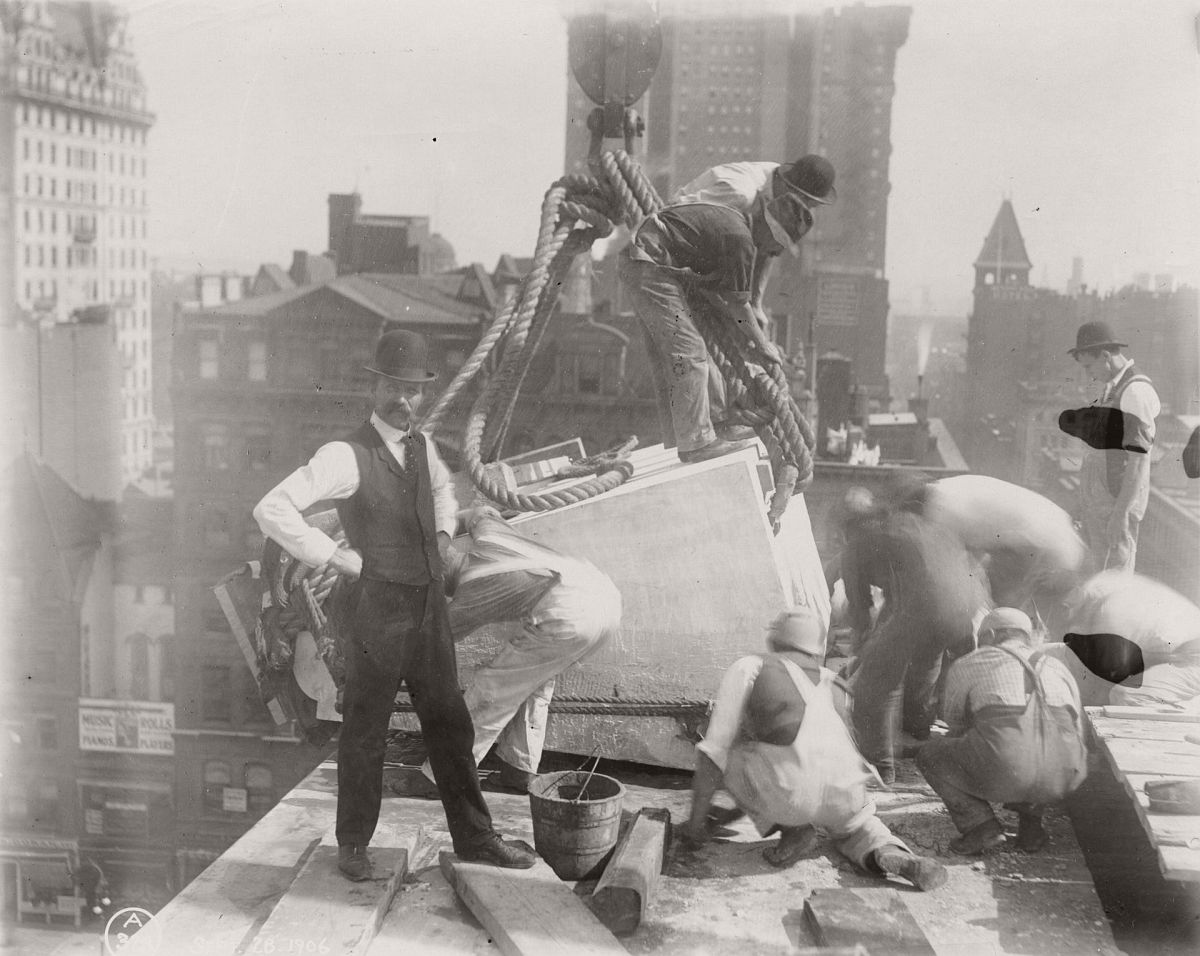
Construction workers position a piece of marble on the roof of the central building of the New York Public Library, 1906. Photograph: New York Public Library
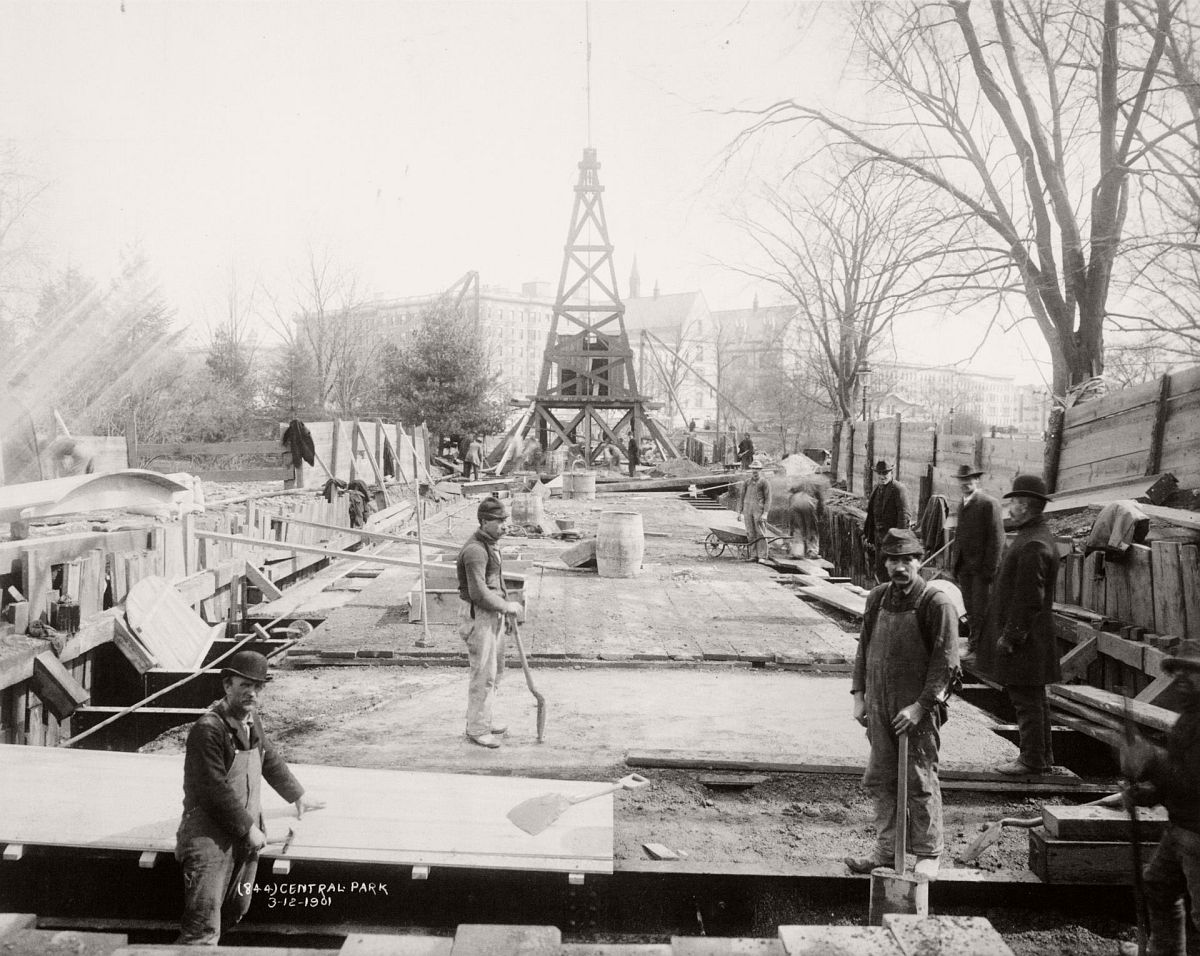
Workers building the Broadway subway line under Central Park, 1901. Photograph: New York Public Library
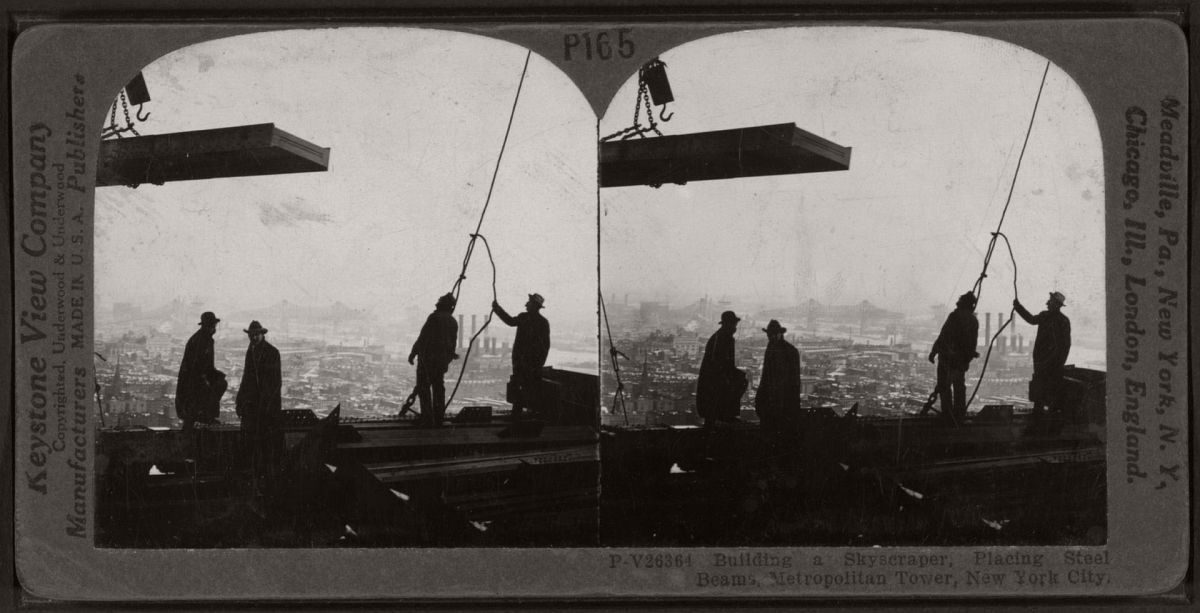
Workers place steel beams for the Metropolitan Tower. Photograph: The Research Libraries, New York/Keystone View Company/Underwood & Underwood
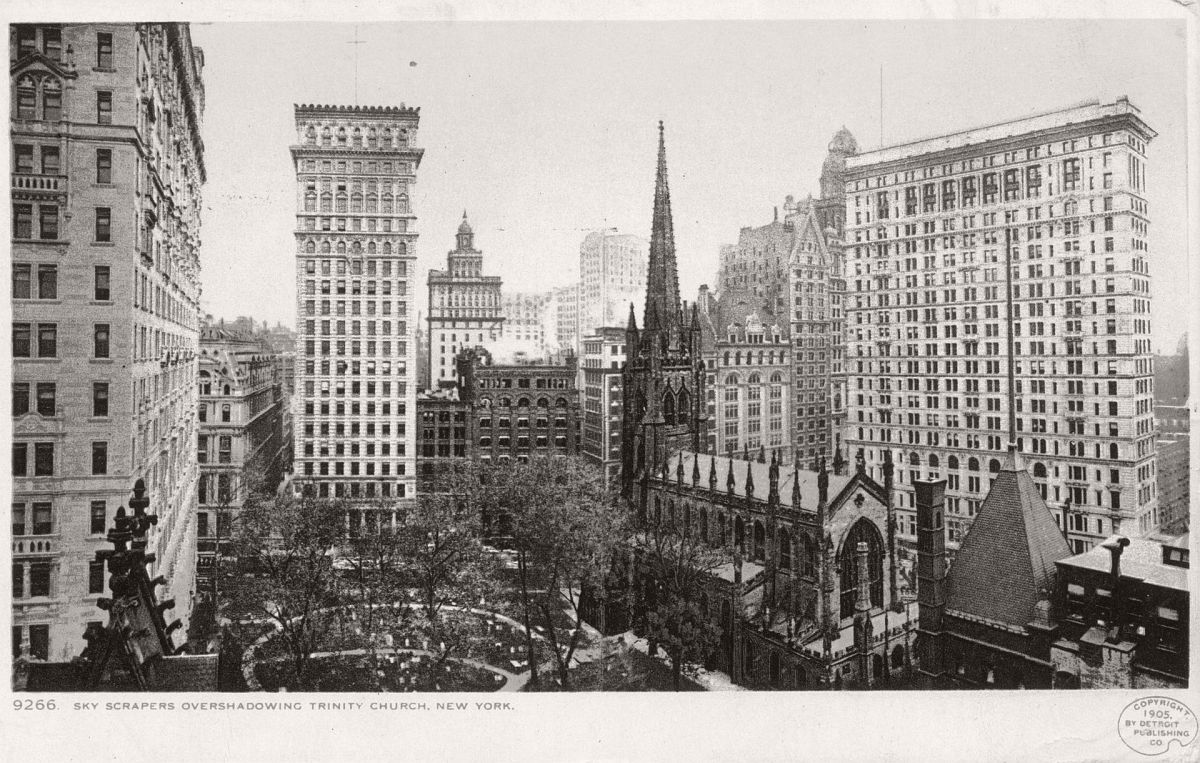
Skyscrapers start to encroach on Trinity Church. Photograph: Detroit Publishing Company Collection from The New York Public Library

